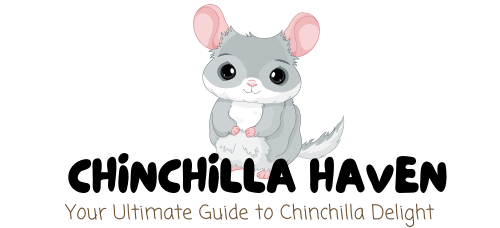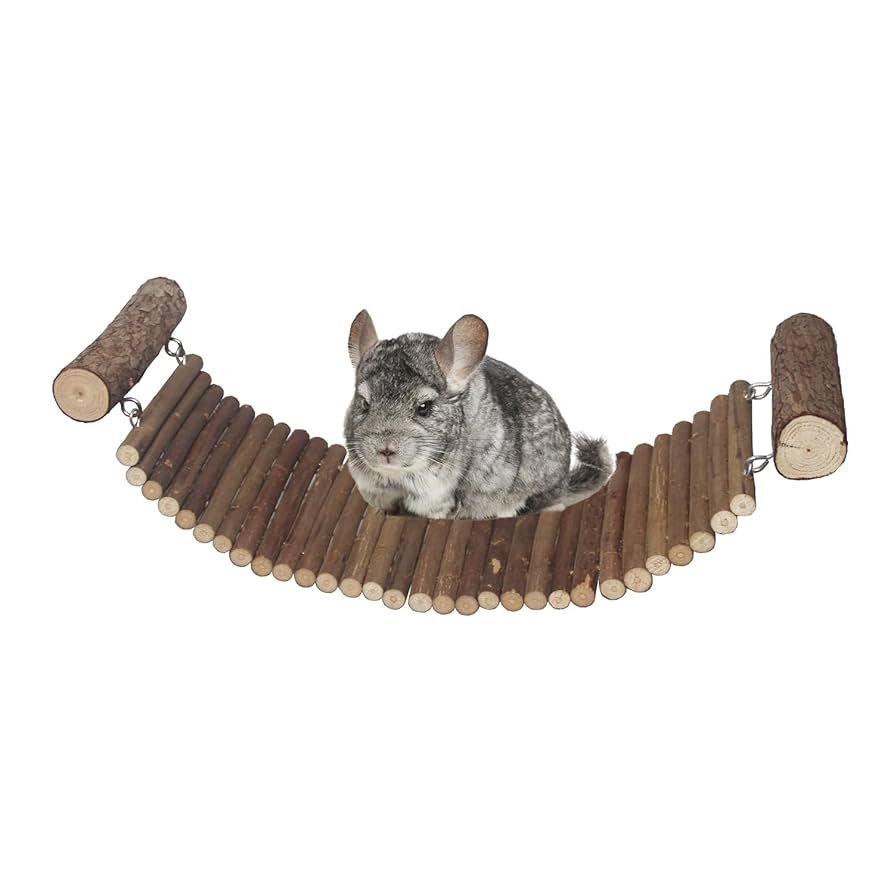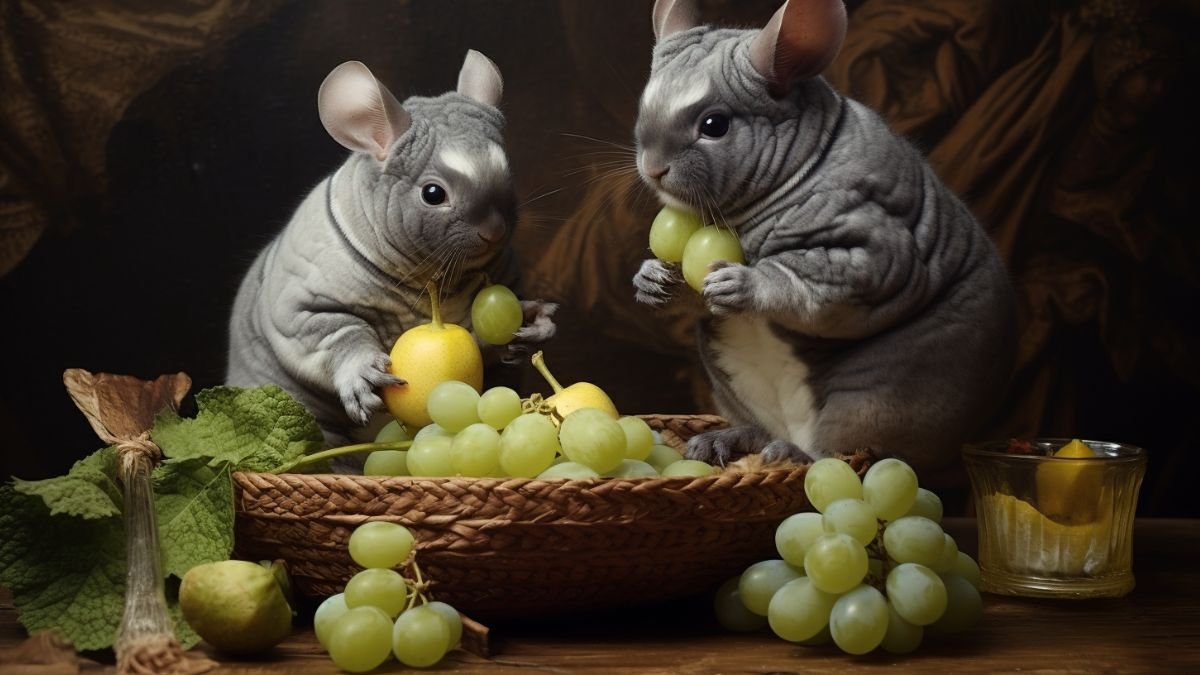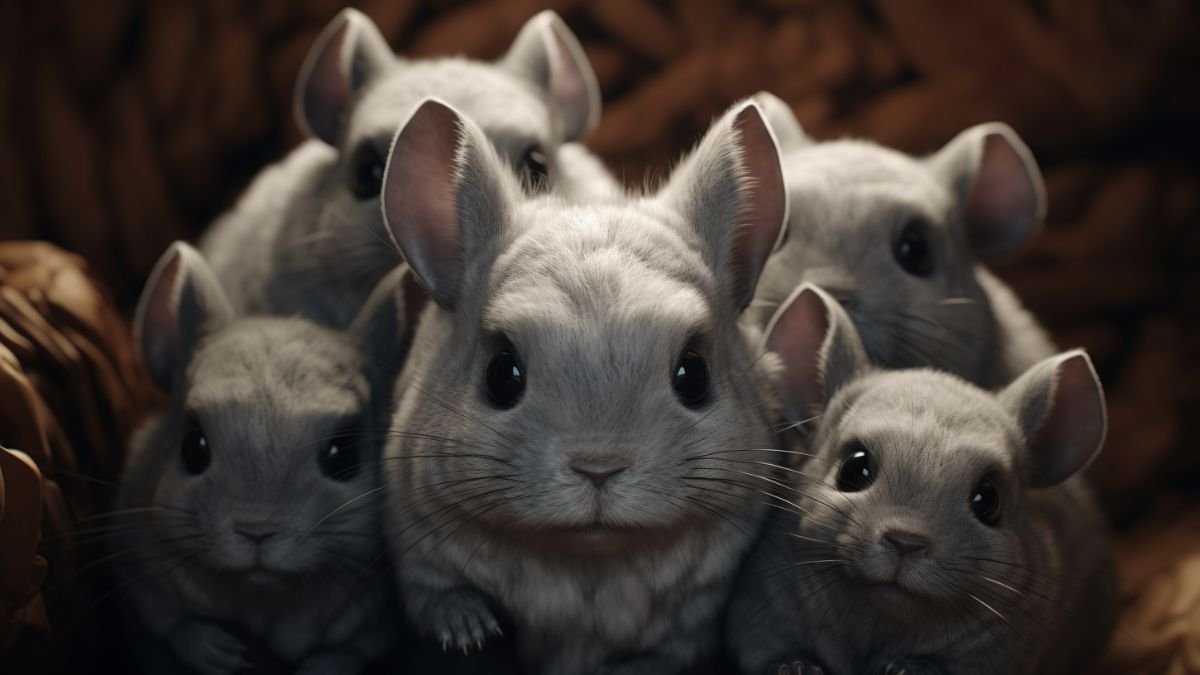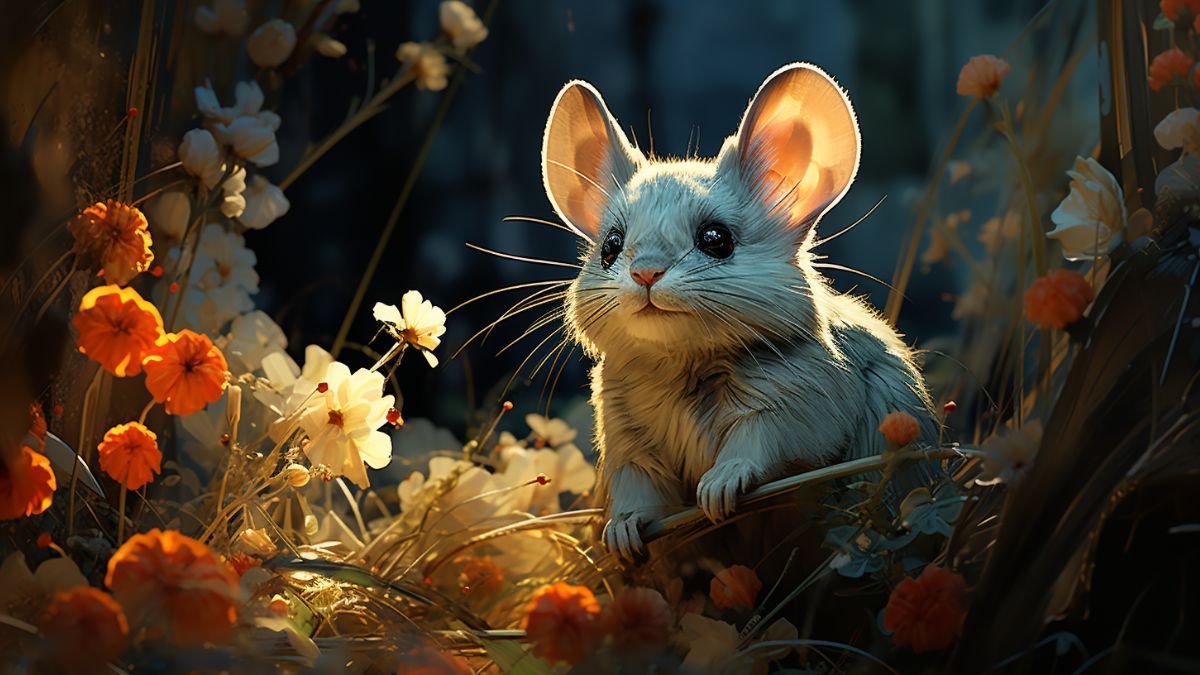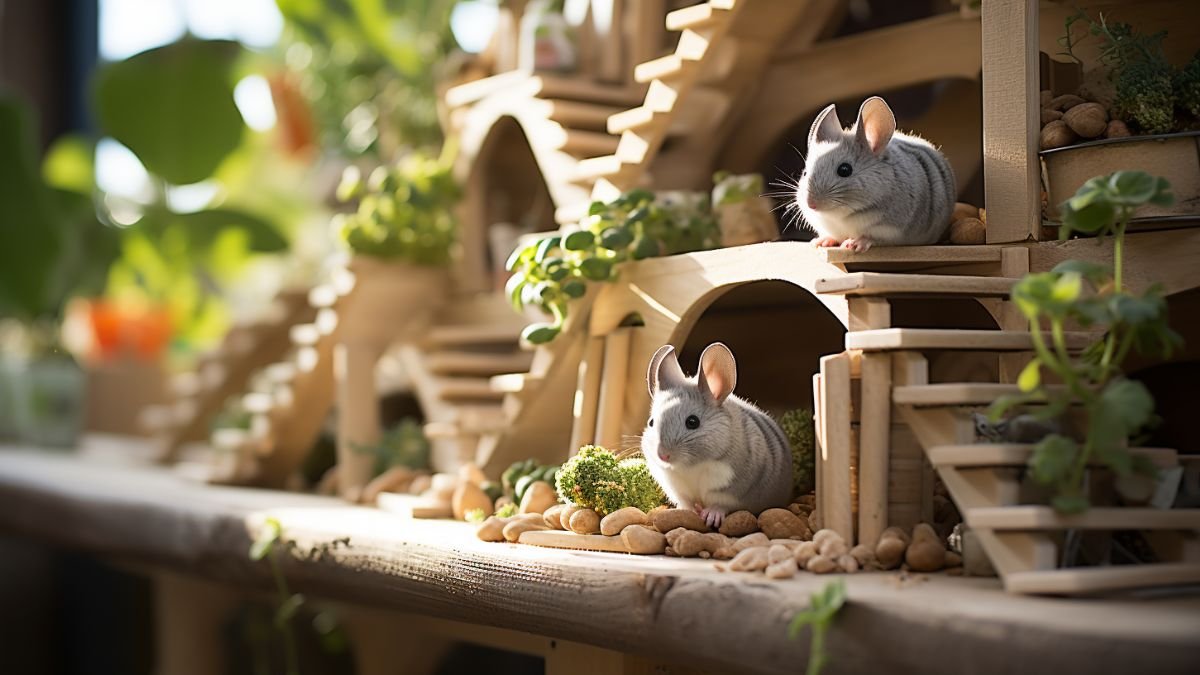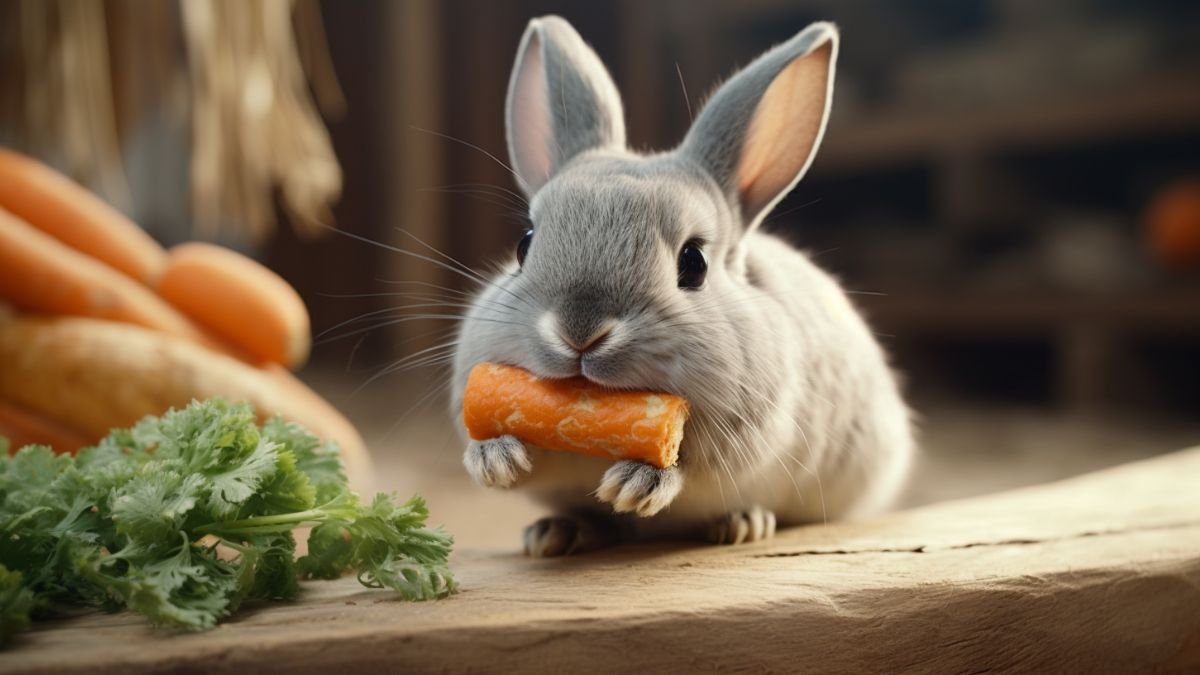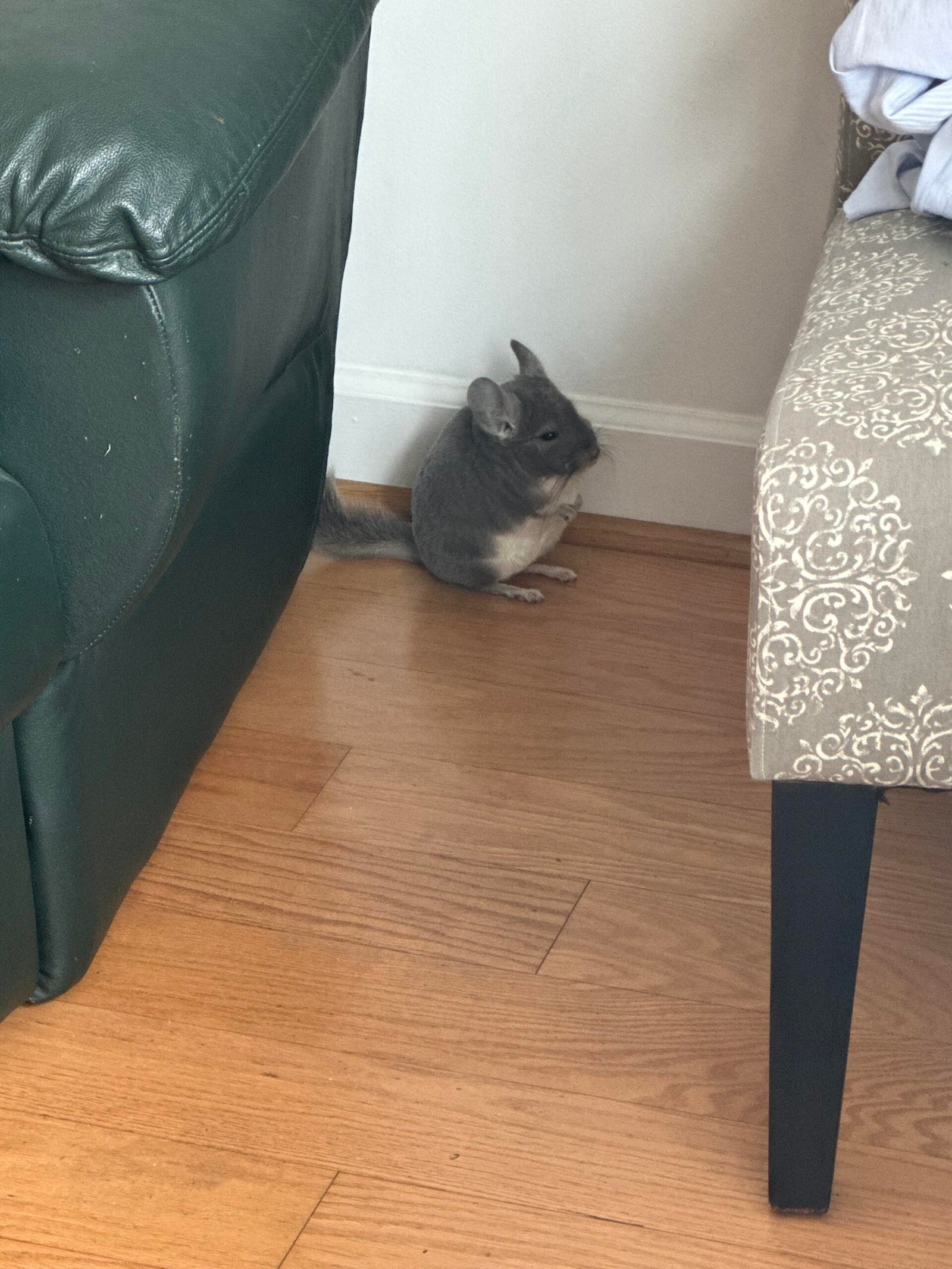
Are you worried about your chinchilla gaining too much weight? Obesity in chinchillas can lead to serious health problems, making it harder for your furry friend to live a happy, active life.
But don’t worry—there are simple steps you can take right now to keep your chinchilla fit and healthy. You’ll discover easy tips that anyone can follow to prevent obesity and ensure your pet stays lively and full of energy. Keep reading to learn how to protect your chinchilla’s health and give them the best care possible.
Causes Of Obesity In Chinchillas
Obesity in chinchillas can cause many health problems. Understanding the causes helps keep them healthy and happy. Several factors lead to weight gain in these small pets. Recognizing these causes is the first step to prevention.
Improper Diet
Feeding chinchillas too many treats or sugary foods causes weight gain. High-fat snacks and fruits can add extra calories. A diet high in pellets but low in fiber also contributes to obesity.
Lack Of Exercise
Chinchillas need regular activity to burn calories. A cage that is too small or lacks toys limits movement. Without enough exercise, chinchillas gain weight quickly.
Overfeeding
Giving too much food, even healthy pellets, leads to obesity. It is easy to misjudge the right portion size. Overfeeding can cause rapid and unhealthy weight gain.
Health Issues
Some health problems affect chinchillas’ metabolism. Hormonal imbalances or illnesses can cause weight gain. Regular vet check-ups help detect these issues early.

Balanced Diet Choices
Choosing the right foods helps keep chinchillas healthy and fit. A balanced diet gives them energy and supports body functions. It stops extra weight and health problems.
Chinchillas need specific nutrients. Feeding them correctly keeps their digestion smooth and bones strong. Focus on the right types of food to avoid obesity.
High-quality Hay As Main Food
Hay should be the biggest part of their diet. It has fiber that helps digestion. Good hay keeps their teeth healthy and prevents overeating.
Timothy hay is a top choice. It is low in calories but full of nutrients. Always offer fresh hay daily for best results.
Limited Treats And Snacks
Treats can cause weight gain if given too much. Fruits and nuts have sugar and fat. Use treats sparingly and choose healthy options.
Small pieces of apple or carrot work well. Avoid sugary or fatty snacks. Treats should not replace main food.
Fresh Water Always Available
Water helps chinchillas digest food properly. It stops them from eating too much. Change water daily and keep the bowl clean.
Avoid Sugary And Fatty Foods
Some foods hurt chinchillas’ health. Avoid chocolate, seeds, and human snacks. These can cause obesity and illness.
Stick to natural, low-fat foods. This supports a healthy weight and good digestion.
Portion Control Techniques
Portion control is key to preventing obesity in chinchillas. Controlling the amount of food keeps their weight healthy. It also helps avoid health problems linked to overeating. Small, measured portions give chinchillas enough nutrition without extra calories.
Using portion control techniques creates a balanced diet. This supports their energy and digestion. It also teaches pet owners to feed chinchillas responsibly. Here are some effective portion control methods.
Measure Food With A Food Scale
Use a small food scale to weigh chinchilla food. This ensures precise portion sizes every day. Avoid guessing how much to give. Measuring helps maintain consistency and prevents overfeeding.
Set Fixed Feeding Times
Feed chinchillas at the same times daily. This routine helps control their hunger and appetite. Avoid leaving food out all day. Scheduled feeding reduces the risk of overeating and obesity.
Divide Daily Food Into Small Meals
Break the total daily food into two or three small meals. Smaller portions are easier to digest. They keep chinchillas satisfied without extra calories. This method mimics their natural eating habits.
Limit Treats And Snacks
Give treats sparingly and in small amounts. Too many treats add unwanted calories. Choose healthy, low-fat treats to avoid weight gain. Treat limits protect chinchillas from obesity risks.
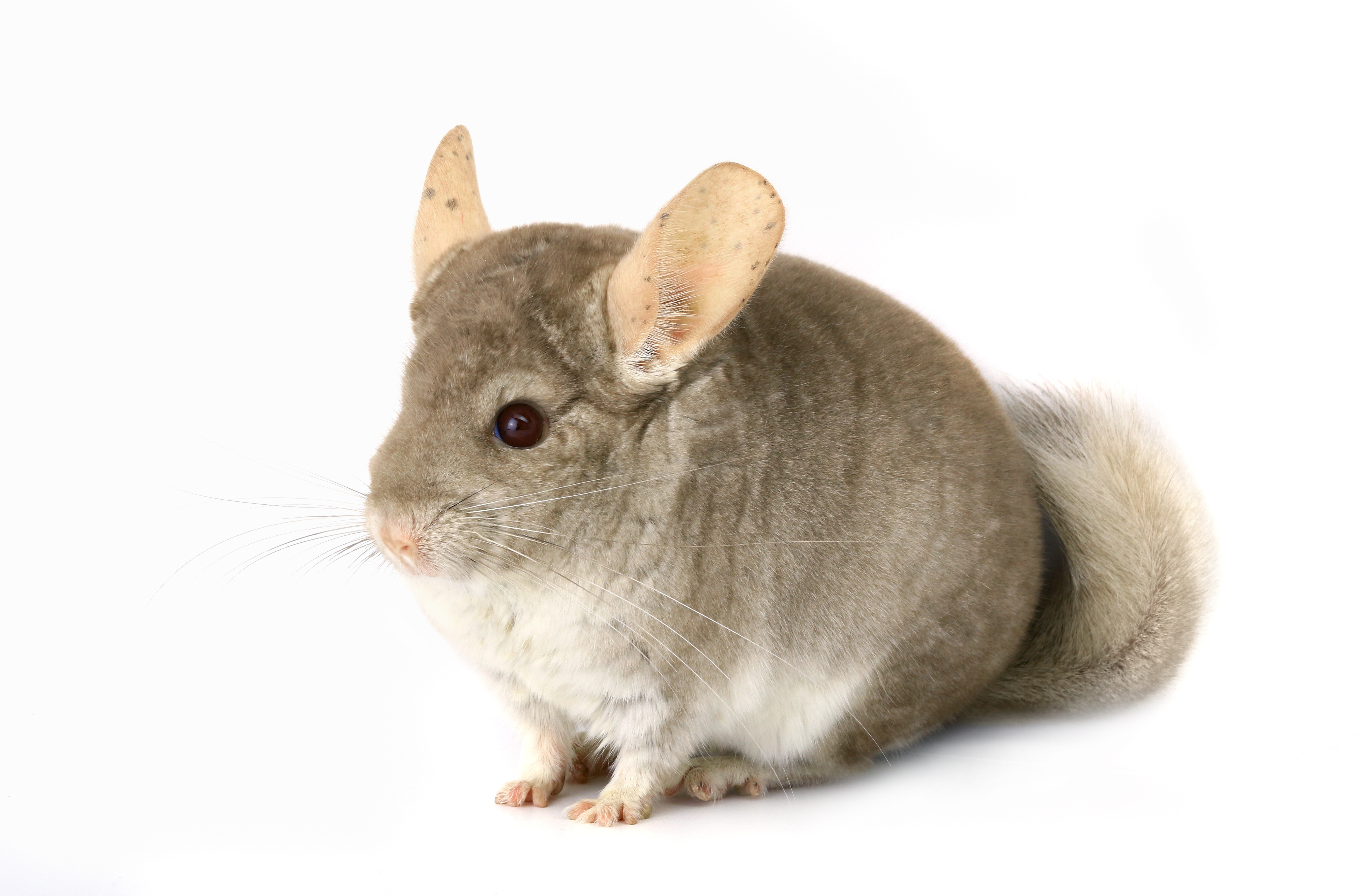
Importance Of Fresh Hay
Fresh hay plays a key role in preventing obesity in chinchillas. It provides essential nutrients and keeps their digestive system healthy. Chinchillas need a steady supply of fresh hay every day to stay active and fit.
Hay helps chinchillas feel full without adding extra calories. It supports chewing, which is vital for their dental health. Healthy teeth encourage chinchillas to eat properly and avoid weight gain.
Provides Essential Fiber
Fiber in fresh hay aids digestion and prevents constipation. It slows down food absorption, helping chinchillas maintain a healthy weight. Without enough fiber, chinchillas may overeat or develop stomach issues.
Encourages Natural Foraging Behavior
Fresh hay allows chinchillas to chew and forage naturally. This activity keeps them busy and reduces boredom. A busy chinchilla is less likely to overeat or become lazy.
Low In Calories
Fresh hay contains few calories but many nutrients. It fills the chinchilla’s stomach without causing weight gain. Feeding hay regularly limits the need for high-calorie treats or pellets.
Supports Dental Health
Chewing fresh hay wears down chinchilla teeth naturally. Overgrown teeth can cause pain and eating problems. Healthy teeth help chinchillas eat the right amount of food daily.
Safe Treat Options
Choosing safe treat options for chinchillas helps prevent obesity. Treats should be healthy and given in small amounts. Avoid sugary or fatty snacks that harm their health.
Natural treats with low calories are best. They keep your chinchilla happy without adding extra weight. Treats can also help build a strong bond with your pet.
Fresh Hay As A Treat
Fresh hay is a great treat for chinchillas. It is low in calories and full of fiber. Fiber helps keep their digestion healthy. Offer a small bundle of fresh hay as a special snack.
Dried Rose Hips
Dried rose hips are safe and tasty for chinchillas. They provide vitamins without extra sugar. Only give a few pieces at a time. This keeps treats healthy and balanced.
Small Pieces Of Apple Or Carrot
Small slices of apple or carrot work well as treats. They add natural sweetness with minimal calories. Limit the amount to avoid weight gain. Wash fruits and vegetables before feeding.
Herbal Leaves
Herbal leaves like dandelion or parsley make good treats. They are nutritious and low in calories. Pick clean, pesticide-free leaves only. Offer fresh or dried leaves in small amounts.
Daily Exercise Needs
Daily exercise is crucial to keep chinchillas healthy and prevent obesity. These small animals need regular movement to burn calories and stay fit. Without enough activity, chinchillas can quickly gain weight, leading to health problems.
Exercise helps chinchillas maintain muscle tone and supports their overall well-being. It also reduces stress and boredom, which can cause overeating. Setting up a good exercise routine is key to a happy pet.
Safe Exercise Space
Create a secure area where your chinchilla can run freely. This space should be free of hazards like wires or sharp objects. A safe environment encourages active play without risks.
Exercise Wheel Use
Provide a solid-surface exercise wheel sized for chinchillas. This wheel allows them to run indoors safely. Avoid wheels with gaps or wire rungs to prevent injuries.
Supervised Playtime Outside Cage
Let your chinchilla explore outside the cage under your watch. Use a playpen or closed room to avoid escapes. Supervised time outside boosts activity and curiosity.
Encourage Climbing And Jumping
Add shelves, ramps, and platforms inside the cage. Chinchillas love to climb and jump. These features promote natural movement and keep them agile.
Enrichment For Activity
Enrichment for activity is key to keeping chinchillas healthy and fit. It helps prevent obesity by encouraging movement. Chinchillas are active animals that need exercise to stay happy. Without enough activity, they can gain too much weight. Providing fun ways to move keeps their bodies strong and minds sharp.
Creating A Playful Environment
Set up spaces with tunnels and platforms. These invite climbing and exploring. Use safe materials like wood or cardboard. Change the layout often to keep chinchillas curious. A playful environment encourages daily movement.
Using Exercise Wheels Safely
Choose wheels designed for chinchillas. They should be large and solid to protect paws. Wheels provide a great way to run indoors. Monitor use to avoid over-exercising or injury. Regular wheel time helps burn calories effectively.
Offering Chew Toys And Climbing Structures
Chew toys keep teeth healthy and minds busy. Climbing structures add fun challenges. Both encourage natural behaviors and physical activity. Rotate toys to maintain interest. These tools support a healthy lifestyle.
Regular Health Monitoring
Regular health monitoring is key to preventing obesity in chinchillas. It helps catch early weight changes and health issues. Daily checks keep your pet active and healthy.
Small weight gains can lead to bigger problems. Watching your chinchilla closely helps you act quickly. This care supports a longer, happier life for your pet.
Weighing Your Chinchilla Weekly
Weigh your chinchilla once a week. Use a small, accurate scale for best results. Record the weight to track any changes over time. Sudden weight gain or loss needs attention.
Observing Eating And Drinking Habits
Check how much your chinchilla eats and drinks each day. Changes in appetite can signal health problems. Healthy chinchillas have steady eating habits. Note any decrease or increase in food intake.
Checking Physical Activity Levels
Watch your chinchilla’s activity daily. Active chinchillas burn more calories and stay fit. A lazy chinchilla may need more exercise or diet changes. Provide toys and space to encourage movement.
Regular Veterinary Check-ups
Schedule vet visits every six months. Vets detect hidden health issues early. They can guide you on weight and diet management. Keep your chinchilla’s health records updated for reference.
Avoiding Common Feeding Mistakes
Feeding chinchillas the right way helps keep them healthy and stops obesity. Many owners make common feeding mistakes without knowing. These mistakes can cause weight gain and health problems. Avoiding these errors is key to your pet’s well-being.
Overfeeding Pellets and TreatsGiving too many pellets or treats adds extra calories. Chinchillas need limited pellets daily, about one tablespoon per day. Treats should be rare and small. Overfeeding causes fat buildup and makes chinchillas lazy.
Offering Sugary or Fatty FoodsSome foods seem harmless but harm chinchillas. Sugary fruits and fatty snacks upset their digestion. These foods increase the risk of obesity fast. Only offer safe, vet-approved foods to avoid problems.
Not Providing Enough HayHay should be the main part of a chinchilla’s diet. It helps digestion and keeps them full. Without enough hay, chinchillas eat more pellets and treats. This leads to weight gain and health issues.
Ignoring Portion ControlFeeding without measuring causes overeating. Even healthy food can cause weight gain if portions are too large. Use a small measuring cup to control daily food. Consistent portions keep your chinchilla fit.

Frequently Asked Questions
What Causes Obesity In Chinchillas?
Overfeeding and lack of exercise are main causes of chinchilla obesity.
How Much Food Should A Chinchilla Eat Daily?
Chinchillas need about 1-2 tablespoons of pellets and unlimited hay daily.
What Types Of Food Prevent Chinchilla Obesity?
High-fiber hay and limited pellets help control chinchilla weight.
How Often Should Chinchillas Exercise To Stay Healthy?
Daily playtime and exercise for at least 30 minutes keep chinchillas fit.
Can Obesity Harm A Chinchilla’s Health?
Yes, obesity can cause heart problems and joint pain in chinchillas.
What Treats Are Safe For Chinchillas Without Causing Weight Gain?
Small amounts of dried rose hips or plain oats make good treats.
How To Spot If A Chinchilla Is Overweight?
Look for difficulty moving and a round, heavy body shape.
Should Chinchilla Diet Change With Age To Prevent Obesity?
Older chinchillas need fewer calories and more fiber to avoid weight gain.
Conclusion
Preventing obesity in chinchillas keeps them healthy and happy. Feed them balanced meals with limited treats. Provide daily exercise with toys and safe space. Watch their weight and behavior closely every day. Small changes make a big difference over time.
Healthy habits help your chinchilla live longer. Care and attention show your love clearly. Keep your pet active, fit, and full of life. Simple steps protect your furry friend’s well-being.
